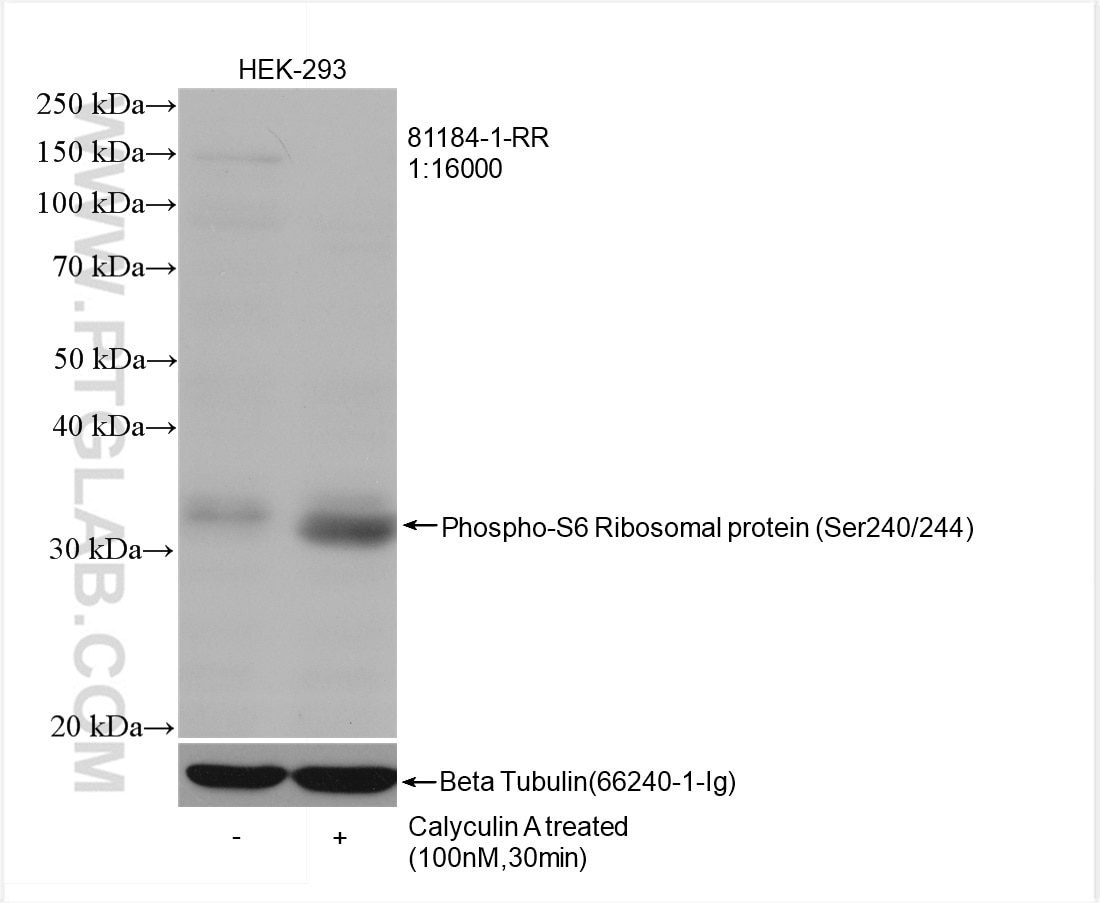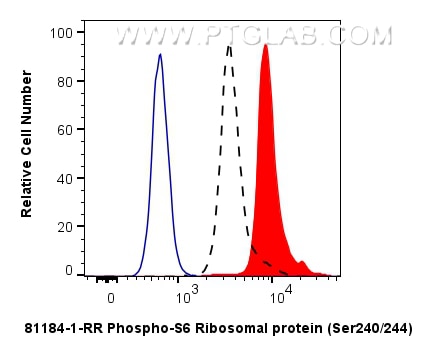Tested Applications
| Positive WB detected in | Calyculin A treated HEK-293 cells |
| Positive FC (Intra) detected in | Calyculin A treated HEK-293 cells |
Recommended dilution
| Application | Dilution |
|---|---|
| Western Blot (WB) | WB : 1:5000-1:50000 |
| Flow Cytometry (FC) (INTRA) | FC (INTRA) : 0.06 ug per 10^6 cells in a 100 µl suspension |
| It is recommended that this reagent should be titrated in each testing system to obtain optimal results. | |
| Sample-dependent, Check data in validation data gallery. | |
Product Information
81184-1-RR targets Phospho-S6 Ribosomal protein (Ser240/244) in WB, FC (Intra), ELISA applications and shows reactivity with human samples.
| Tested Reactivity | human |
| Host / Isotype | Rabbit / IgG |
| Class | Recombinant |
| Type | Antibody |
| Immunogen | Peptide Predict reactive species |
| Full Name | ribosomal protein S6 |
| Observed Molecular Weight | 32 kDa |
| GenBank Accession Number | NM_001010 |
| Gene Symbol | RPS6 |
| Gene ID (NCBI) | 6194 |
| RRID | AB_2935425 |
| Conjugate | Unconjugated |
| Form | Liquid |
| Purification Method | Protein A purification |
| UNIPROT ID | P62753 |
| Storage Buffer | PBS with 0.02% sodium azide and 50% glycerol, pH 7.3. |
| Storage Conditions | Store at -20°C. Stable for one year after shipment. Aliquoting is unnecessary for -20oC storage. 20ul sizes contain 0.1% BSA. |
Background Information
Ribosomal protein S6 (RPS6), also named Phosphoprotein NP33, may play an important role in controlling cell growth and proliferation through the selective translation of particular classes of mRNA. Ribosomal protein S6 is the major substrate of protein kinases in eukaryote ribosomes. The phosphorylation is stimulated by growth factors, tumor promoting agents, and mitogens and is dephosphorylated at growth arrest.
Protocols
| Product Specific Protocols | |
|---|---|
| WB protocol for Phospho-S6 Ribosomal protein (Ser240/244) antibody 81184-1-RR | Download protocol |
| Standard Protocols | |
|---|---|
| Click here to view our Standard Protocols |





